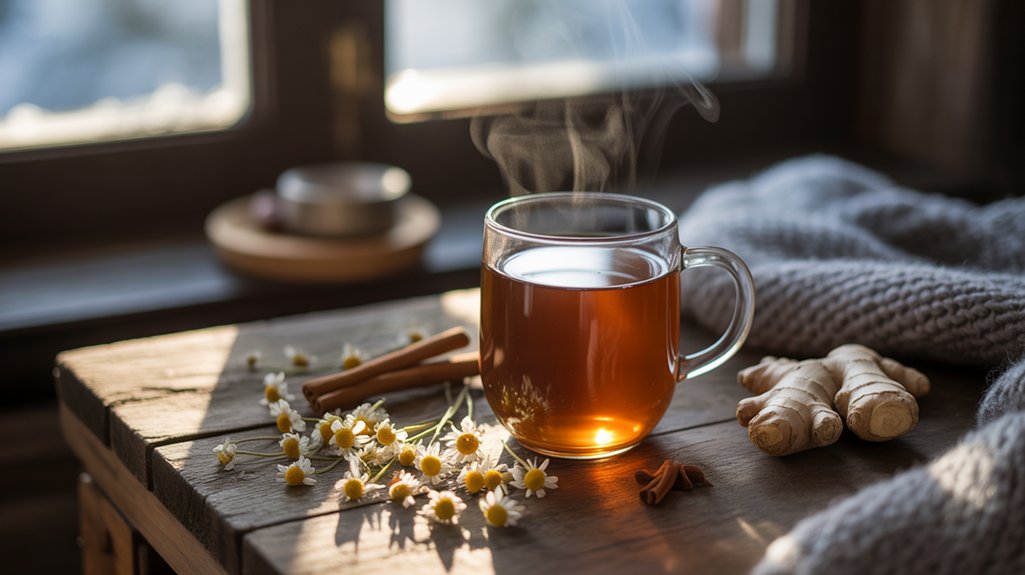As winter approaches and respiratory challenges intensify, herbal tea blends have gained scientific attention for their potential immunomodulatory properties. Yogi’s formulations combine traditional botanical compounds like echinacea, elderberry, and ginger—ingredients supported by preliminary research for their anti-inflammatory and antiviral activities. While individual responses vary considerably, emerging data suggests specific herbal combinations may influence immune function and symptom duration. However, the effectiveness of these USDA-certified organic blends depends on several critical factors that determine their therapeutic potential.
Herbal Power for Cold Combat and Prevention
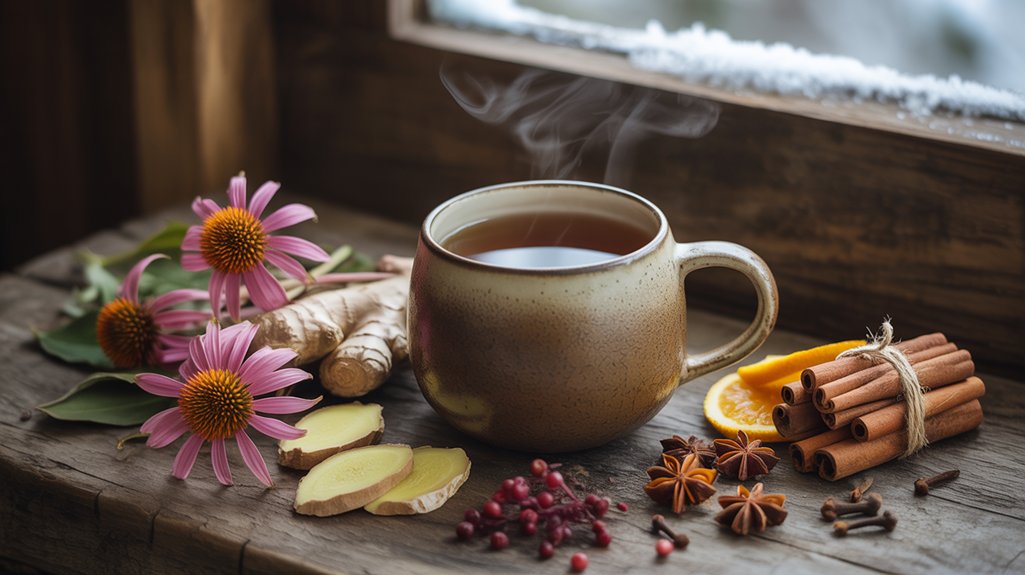
When cold symptoms begin to emerge, Yogi Herbal Teas for Cold Season combines traditional herbal ingredients specifically formulated to address respiratory discomfort and support immune function. These herbal remedies utilize organic botanical compounds that have been historically employed for seasonal wellness support. The formulation targets cold-related symptoms while providing immune support through carefully selected plant-based ingredients. Customer feedback indicates effectiveness when used consistently at symptom onset, with users reporting reduced severity and duration of cold symptoms. The USDA Organic certification ensures ingredients meet strict quality standards without synthetic additives, preservatives, or artificial compounds that could compromise therapeutic potential.
USDA Organic Certification and Sustainable Farming Practices

Through rigorous USDA Organic certification standards, Yogi Herbal Teas for Cold Season maintains compliance with federal requirements mandating a minimum of 95% organic ingredients sourced from agricultural systems that prohibit synthetic chemicals, pesticides, and genetically modified organisms.
The certification ensures three-year crop rotation cycles free from prohibited substances prior to harvest. Sustainable agriculture practices employed in production enhance soil composition and water quality while reducing synthetic material dependency.
Organic farming methodologies preserve biodiversity through natural cultivation techniques. These certified practices eliminate artificial colors, flavors, and preservatives, delivering herbal ingredients that meet strict federal organic standards for consumer safety.
Cost Breakdown and Value Analysis
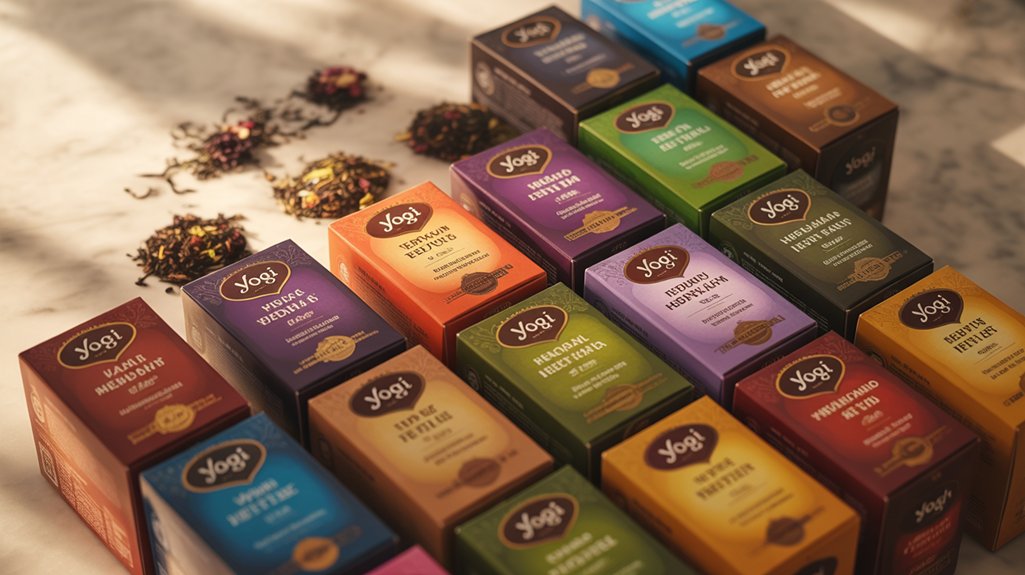
Market analysis reveals Yogi Herbal Teas for Cold Season offers a competitive unit cost of $0.46 per teabag at the current sale price of $21.99, representing a 13% reduction from the manufacturer’s suggested retail price of $25.24.
The 48-count multi-pack format provides cost efficiency for consumers seeking consistent access to herbal benefits during peak illness seasons.
International shipping adds $7.63 to Argentina, totaling $51.23.
Consumer feedback indicates the investment proves worthwhile for managing cold symptoms, though taste preferences vary significantly.
The organic certification justifies premium pricing compared to conventional alternatives, supporting both therapeutic efficacy and sustainable agricultural practices.
Customer Ratings and Market Performance
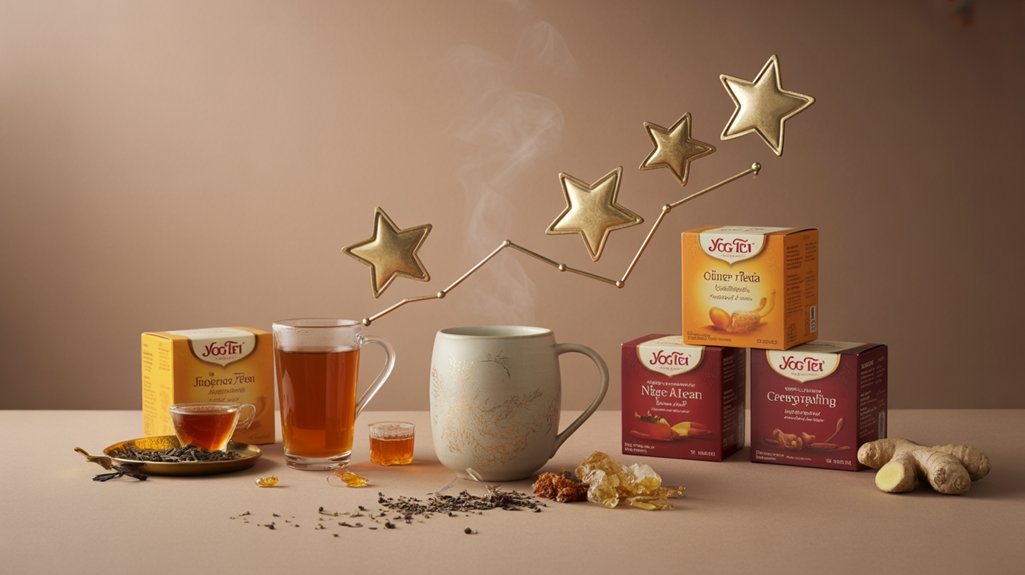
Although customer satisfaction metrics reflect generally positive reception, Yogi Herbal Teas for Cold Season demonstrates mixed market performance indicators that warrant careful examination.
The product maintains a 4.3-star rating from 48 customer evaluations, suggesting moderate consumer approval. However, its #178,225 ranking in Grocery & Gourmet Food indicates limited market penetration despite availability since 2010.
Customer preferences appear polarized regarding palatability, with efficacy praised but taste criticized. Rating trends reveal consistent feedback patterns emphasizing therapeutic benefits while highlighting flavor challenges.
The #1,841 position in Tea Samplers represents a more competitive niche ranking, suggesting targeted market appeal within specialized consumer segments seeking herbal wellness solutions.
Real User Experiences and Health Benefits
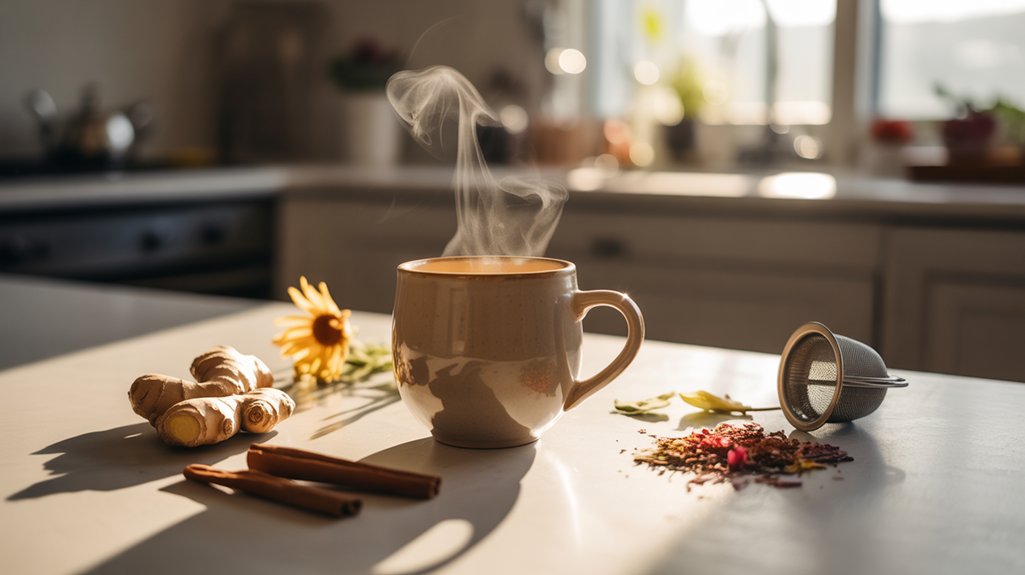
What specific health outcomes do consumers report when using Yogi Herbal Teas for Cold Season as part of their wellness routine?
User experiences indicate reported benefits including cold symptom management and illness prevention. Multiple consumers document using the tea proactively when feeling unwell, with some noting prevention of symptom progression.
Health benefits mentioned by users include respiratory support and overall wellness maintenance during cold season.
However, user experiences vary significantly regarding palatability, with some finding the herbal blend challenging to consume despite perceived efficacy.
These consumer reports suggest potential wellness applications, though individual responses differ considerably across documented feedback.
Taste Considerations and Flavor Profile
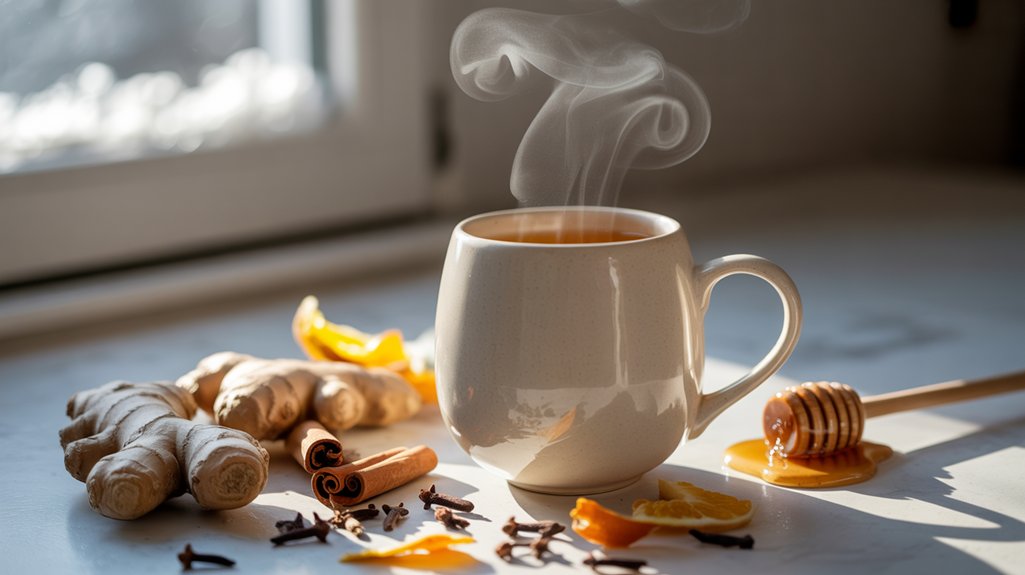
While reported health benefits demonstrate consumer satisfaction with therapeutic outcomes, palatability remains a significant consideration for sustained use of Yogi Herbal Teas for Cold Season.
Consumer feedback reveals polarized responses regarding taste acceptability, with some users finding the herbal flavor combinations challenging to consume regularly. Individual taste preferences significantly influence compliance and long-term usage patterns.
The tea’s therapeutic herbal formulation prioritizes medicinal efficacy over palatability, resulting in a robust flavor profile that may require gradual adaptation.
Users seeking cold season support should consider personal flavor tolerance when evaluating this product’s suitability for consistent therapeutic use.
Multi-Pack Convenience and Bulk Purchase Benefits
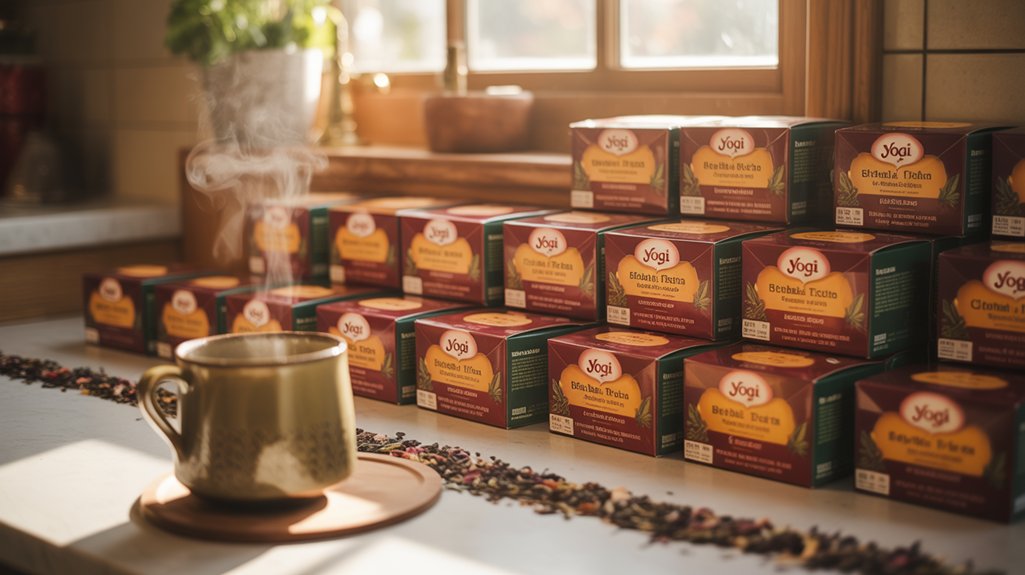
Because Yogi Herbal Teas for Cold Season are packaged in a 16-count, 3-pack configuration totaling 48 teabags, consumers benefit from extended therapeutic coverage throughout the cold season without frequent reordering.
This multi pack savings approach reduces per-unit costs to $0.46 per teabag while ensuring consistent availability during peak illness periods. The bulk health strategy allows users to maintain preventative protocols and respond immediately to symptom onset.
Customer feedback indicates that multi-pack purchases provide necessary convenience for sustained respiratory support. The 48-count configuration supports recommended consistent use patterns that users report as essential for optimal therapeutic outcomes during cold season challenges.
Conclusion
Yogi Herbal Teas present a USDA Organic option for cold season support, though scientific evidence for specific therapeutic claims remains limited. The 48-count multi-pack offers reasonable value for regular consumers. While some users report benefits when consumed early in symptom onset, taste preferences vary significantly. Healthcare professionals should note that herbal teas complement but cannot replace evidence-based medical interventions. Individual responses to botanical compounds differ, warranting cautious evaluation of personal tolerance and effectiveness.
